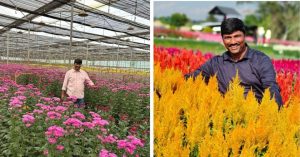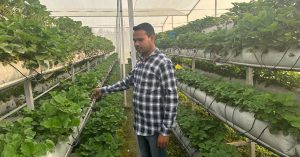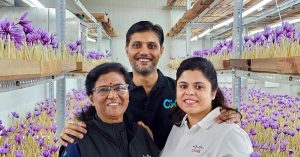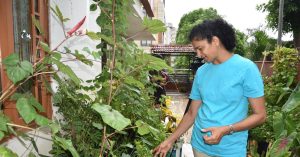Amid Himachal’s Apple Crisis, Ex-Banker Turns Barren Land into Orchard With 20000 Trees
Ex-banker Vikram Singh Rawat turned a barren piece of land into a lush apple orchard and farmstay named Kalasan Nursery Farm, which he built over a decade. Today, it has thousands of apple trees and earns crores.
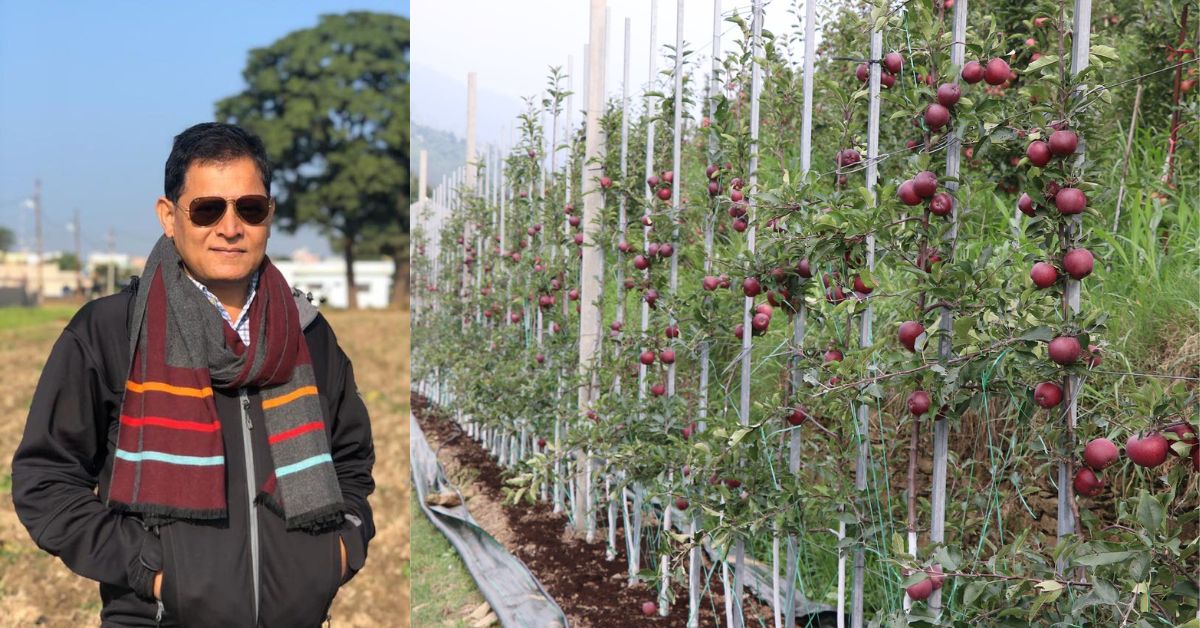
“Rome was not built in a day”, and neither was the Kalasan Nursery Farm, say Vikram and Rajani Rawat, a couple who run a beautiful apple orchard in the heart of Kalasan, a quiet village in Himachal Pradesh’s Karsog area.
Before taking this up, Vikram was a banker and had no connection to apples or farming. In fact, he didn’t even own farming land.
It was a chance encounter and a deep interest in the subject that led to this experiment.
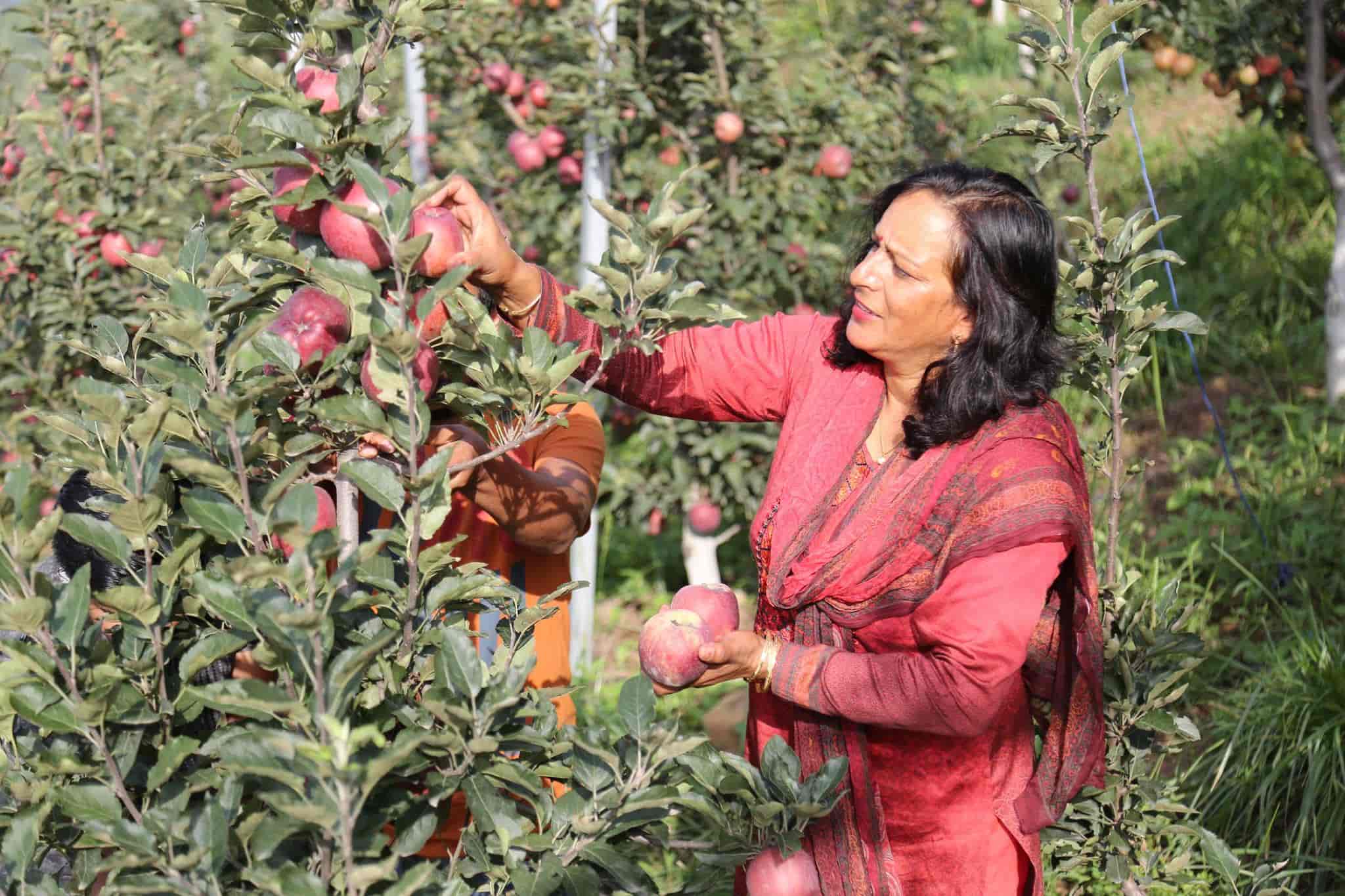
“In 2001, I was posted in Kangra, Himachal Pradesh. I made some good friends at work. One of those friends had an apple orchard of about 20 bigha of land. I once told him that I was waiting to try the apples. However, his answer shocked me,” Vikram recalls in conversation with The Better India. “He told me he hadn’t had any yield in three years.”
He adds, “Sometime later, I read an article about the yield and productivity of apples in the country. It stated that while Kashmir had a good yield, Himachal was failing.”
Vikram says that because he was away from his family, he had a lot of time on hand to begin researching about why apples were so tough to grow in Himachal, despite it being so renowned for the fruit.
He found that while some countries had a per hectare yield of 20 tonnes, India was lagging behind. Specifically, Himachal had a yield at that time of 1.55 tonnes per hectare, while Kashmir had a yield of 3.5 tonnes.
“I read up on what other countries did differently. While India uses seedling rootstock, others were using clonal rootstock apples, which gives a better yield,” adds Vikram.
Clonal rootstocks are known to bear more fruits, and are resistant to insects and pests, as well as suitable for high-density planting.
Buoyed by this information, he procured 70 rootstocks from Dr Y S Parmar University of Horticulture & Forestry and distributed them to local farmers.
“I found local farmers in Arsu and distributed these rootstock apples for free. I went to them after three months to find out if the apples were growing. Unfortunately, none of them took interest and didn’t take care of the plants. We didn’t get the result we desired,” adds Vikram.
Setting his own example
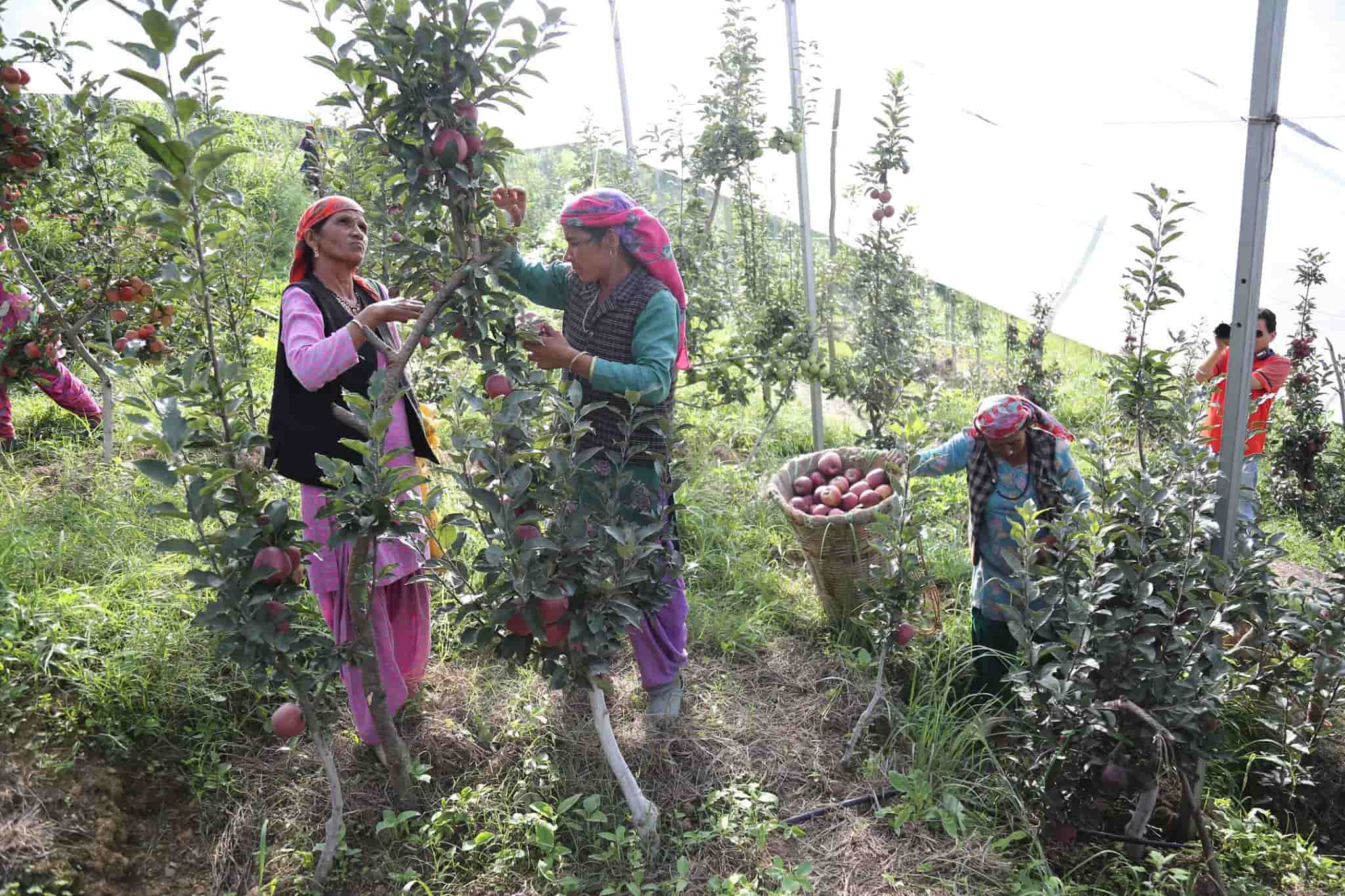
Not one to accept defeat, the 56-year-old gave it another try.
Vikram says that as part of his bank work, he used to interact with self-help groups in Arsu. “I set up eight-nine such groups and met them on evenings and Sundays,” he says.
“We started motivating these women and farmers. I thought of distributing the rootstocks to them. I arranged a meeting and was the ‘instructor’. It was ironic because I didn’t own land, didn’t have knowledge of apples, and hadn’t ever planted an apple tree. When I told the farmers about the apple rootstock, they laughed and told me, ‘Tell us about banking, not farming’,” says Vikram.
It was then that he decided to make a demonstration orchard to set an example for other farmers to replicate. This was the turning point in his life, says Vikram.
With the help of his brother-in-law Rajesh, he found 42 bighas of land (3.5 hectares) in Kalasan. This land, he says, was barren, neglected and ill-maintained, with some rotten apple trees. But in it, Vikram saw potential.
In December 2002, he bought the land, and the family shifted there a month later.
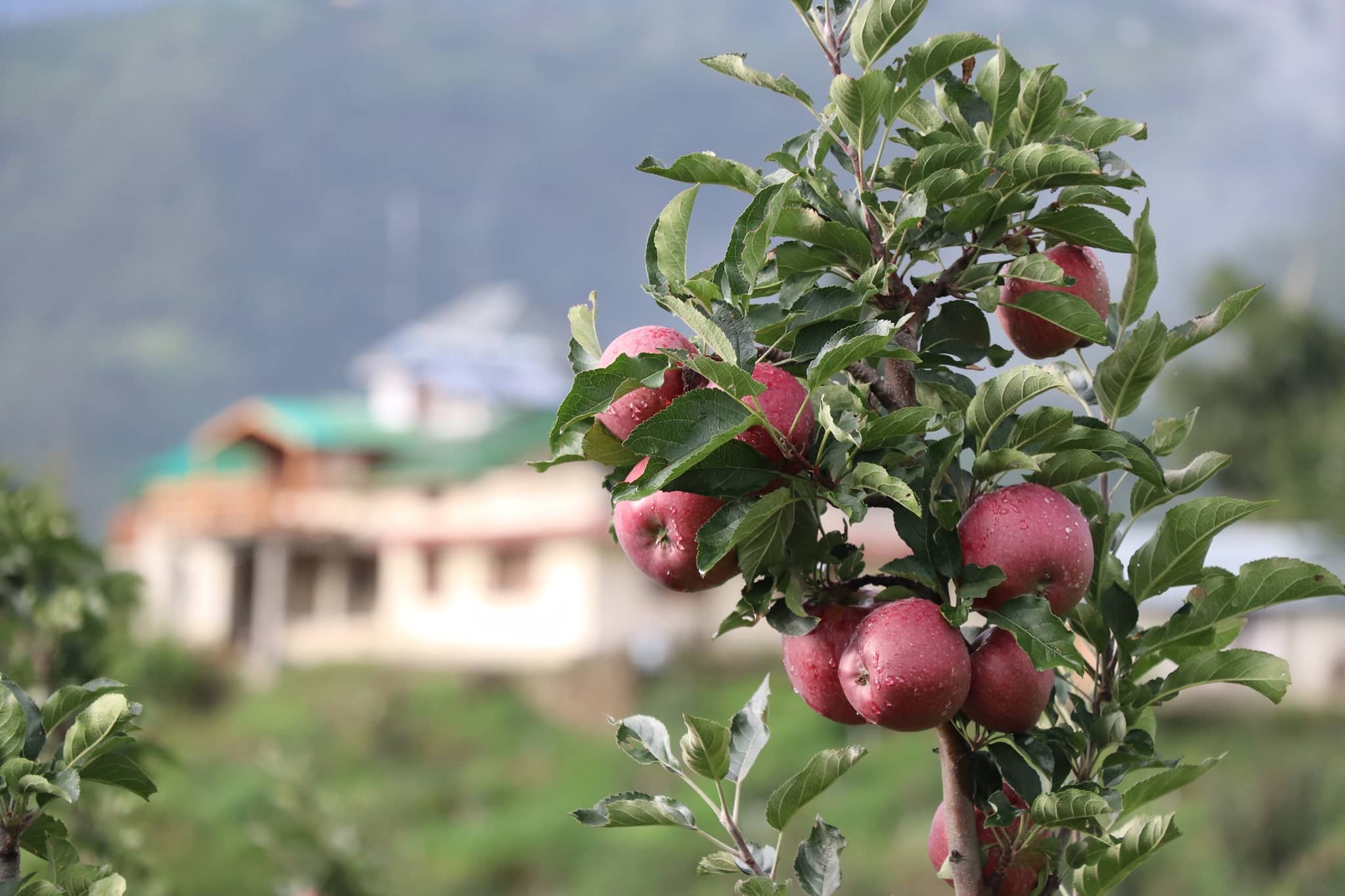
“There was nothing on that land, no habitation. For the first year, we pitched tents and stayed there. There was just a small hall where we used to cook. For staying and using the toilets, we had to use our tents only. We had to set everything up from scratch. I had taken a loan for the land and had to think of how to repay it. It was a challenging time for us, emotionally and financially,” Vikram recalls.
What added to his woes were the experts and horticulturists who visited the location. They all said that apple cultivation was not possible there. Despite this, Vikram was determined. He bought various rootstocks from England and tried cultivating them. However, he was faced with several challenges, and wouldn’t get a successful crop till ten years later.
One NGO that helped the apple enthusiast was Winrock International.
“Even before I bought the land, I came to know of this American NGO that helps farmers with technology and knowledge transfer. They were in Uttarakhand. I immediately communicated with them over email, and my brother-in-law and I went to meet them. In May 2003, one of their experts visited the farm and helped me with the methods to be used and guided me,” adds Vikram
Rajani says that although the challenges were several, they didn’t compromise on the quality of the rootstocks and equipment. “I realised that the methods followed by traditional farmers would take very long to bear results. I did a lot of research about methods used in the Netherlands, Italy, etc. That’s when I learnt about high-density farming,” says Vikram.
“In traditional seedling rootstocks, it takes about 5-10 years to get a good yield. In clonal rootstocks, we get a good yield in three years. Also, while we can plant about 50 seedlings on one bigha land using traditional methods, in high-density farming, which we use, we can plant 200 in the same one bigha land,” says Vikram.
At this time, he was still working, posted in different locations and visiting the farm during weekends. He retired in 2019 and is now pursuing farming full-time.
“I had to do an entire week’s work in one day. We used to try different rootstocks and learnt something new every year. Rajani and I are very patient and optimistic. After trying for many years, we had the perfect formula and tasted success sometime in 2013-14. We never gave up. I was very determined to ensure that we grew apples,” says Vikram.
After that success, there has been no looking back. Today, the Rawats say they have more than 20,000 apple plants and employ 70 people at their orchard.
They also run a farmstay, and generate a total income of about Rs 1.5 crore per year.
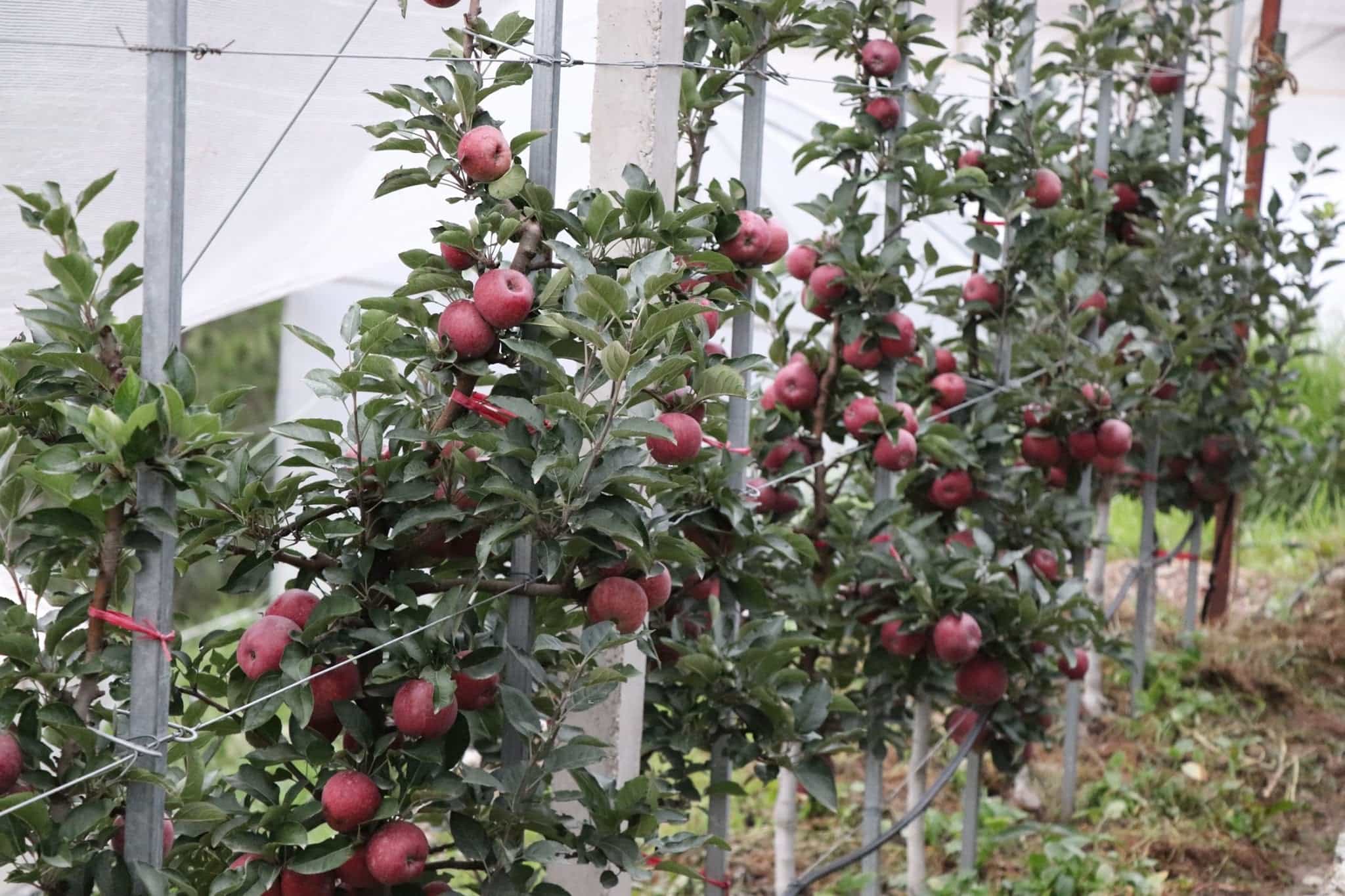
“Today, people from all over the country and world come to see our farm. They learn apple cultivation from us. All our struggles have borne fruit,” says Rajani, adding that they also use techniques and technology from Israel.
“We have now started automation of the orchard. We bought technology from Israel and completely renovated our orchard two years ago. Sensors help in giving water and nutrients to the plants. We’ve moved from high-density to ultra high-density apples. This has affected our production in the past two years, but will bear fruit in the future,” says Vikram.
Passing on the information to more farmers
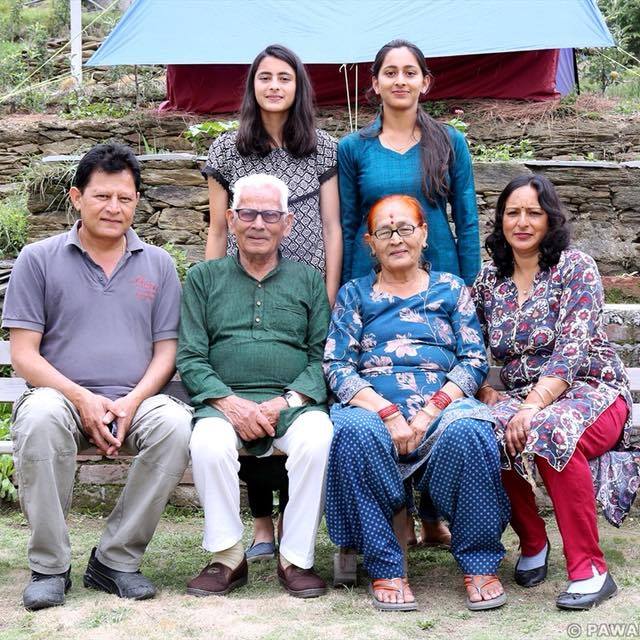
While Vikram has been in Himachal since 2000, he hails from Uttarakhand. Seeing the intense migration in his home state, he started visiting farmers there and teaching them farming techniques.
“I have been providing free training to farmers in Uttarakhand and Himachal. We need to help them increase their yield to prevent migration. I plan to help more farmers in the coming days,” says Vikram.
He says that so far, he has trained 11,000 farmers for free. He visits farms in Uttarakhand and provides opinions on apples and other fruits grown there. He has distributed five lakh apple saplings.
“Uttarakhand is very good for cultivating apples, blueberries, walnuts, and kiwis. I am training farmers in that, and they are doing well. The tool to ensure reverse migration is fruit production. I’m happy that many youngsters are coming forward now. I plan to continue this work and help my home state,” says Vikram.
Edited by Divya Sethu, Image Courtesy Vikram Singh Rawat
If you found our stories insightful, informative, or even just enjoyable, we invite you to consider making a voluntary payment to support the work we do at The Better India. Your contribution helps us continue producing quality content that educates, inspires, and drives positive change.
Choose one of the payment options below for your contribution-
By paying for the stories you value, you directly contribute to sustaining our efforts focused on making a difference in the world. Together, let's ensure that impactful stories continue to be told and shared, enriching lives and communities alike.
Thank you for your support. Here are some frequently asked questions you might find helpful to know why you are contributing?


This story made me
-
97
-
121
-
89
-
167




